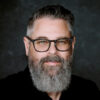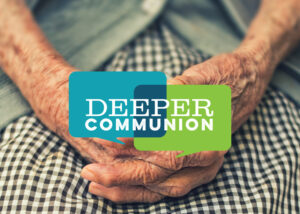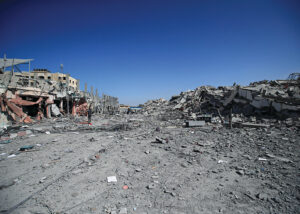I have a nagging thought as I sit down to write this article. It’s this: I have no idea what state our world will be in when you read this in a few weeks. Who knows what will happen between now and then?
It’s unsettling to be aware of not only the possibility—but the probability—something catastrophic will happen in the near future. Another devastating natural disaster, explosion, school shooting, war, stock market crash . . . the possibilities are endless. Any or all of these could happen before this article goes to print.
This is our current reality, though, isn’t it? We live in continuous anticipation of the worst from an apparently angry Mother Nature, to our increasingly fragile economic, social and political systems with a growing number of unpredictable and unstable world leaders. It’s no longer shocking to us when disaster strikes. We know it’s coming, it’s just a matter of when. We slowly become numb to calamity from overexposure, and the melodramatic news updates that qualify as journalism today don’t help.
What we’re experiencing is more than the media selling fear, though. There’s something else going on. Brilliant scientists are starting to sound like fire and brimstone preachers, warning us of the impending day of reckoning for our unrepentant response to climate change. Genius technology pioneers like Tesla co-founder Elon Musk are alarming us to the “fact” that artificial intelligence is the greatest and most immediate threat to the future of humanity. It seems that many of the current TV shows and movies are apocalyptic or post-apocalyptic in nature.
What’s going on? Are we collectively anticipating the end of the world?
In his book The Concept of Anxiety, Danish philosopher Soren Kierkegaard describes anxiety as essentially unfocussed fear. He writes, “When I behold my possibilities, I experience that anxiety which is the dizziness of freedom, and my choice is made in fear and trembling.”
For Kierkegaard, anxiety is the paralyzing awareness of endless possibilities. This is why people often gravitate to rigid authoritarian leaders, systems and institutions in times of elevated anxiety. We try to end our anxiety by eliminating possibility and choice.
Individuals, especially young people, have never been faced with such limitless possibility. Choose your major, your career, your music sub-genre, your gender, your dream . . . you name it. You can be anything you want. The possibilities are endless. Of course, therein lies the problem. As our possibilities increase, so does our apocalyptic preoccupation with the end of the world. Why? Because the end of the world represents the ultimate elimination of possibility, and this is what we believe, if only subconsciously, will relieve our growing anxiety.
Psychiatrist Rollo May said, “Real creativity is not possible without anxiety,” because “creating, actualizing one’s possibilities, always involves negative as well as positive aspects. It always involves destroying the status quo, destroying old patterns . . . destroying what one has clung to.” This is the paradox of possibility. When we choose to act, to create, to actualize a possibility, we simultaneously choose to annihilate or let go of all other incompatible possibilities.
Another paradox of possibility is that the very thing we desire—possibility—is the very thing we dread. The possibility of being successful, finding true love, losing weight, being healed: these are possibilities we desire. Yet to accept that one possibility can be actualized is to accept any possibility can be actualized, including those we dread, aren’t aware of or can’t yet imagine. This scatters our fear into a thousand different directions and paralyzes us.
Kierkegaard says anxiety causes us to sink deeper and deeper into non-being or it forces us to choose, and this is the gift of anxiety. It can be a catalyst for us to choose, to actualize a particular possibility. When we do, our fear is no longer unfocussed. We now know exactly what we fear, namely, the possibility that the possibility we’ve chosen will not be actualized! This is why we “choose with fear and trembling.”
To fear a specific possibility is better than fearing endless possibilities, but there is an even better option. Kierkegaard says the only path to true freedom from anxiety is “a leap of faith,” which requires focussing all our fear on God. This was Jesus’ solution to anxiety as well: fear God, and only God.
The concept of fearing God has baggage for many, and needs to be unpacked in new and fresh ways, but I think it’s worth exploring. If Jesus and Kierkegaard are right, our freedom and sanity may depend on it.
Troy Watson is pastor of Avon Mennonite Church in Stratford, Ont.







Leave a Reply
You must be logged in to post a comment.